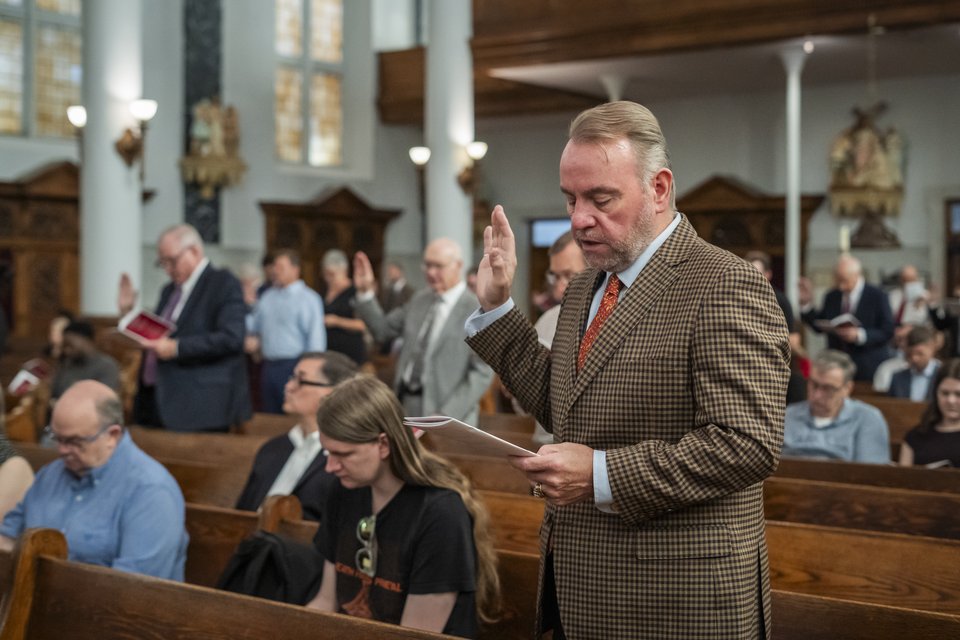Proposed rule change would force judges to 'affirm an ideology' contrary to their faith; public comment open until May 1
LANSING — The Catholic Lawyers Society of Metropolitan Detroit and others have voiced opposition to a new rule that would compel Michigan judges to address attorneys and parties in court using their preferred “personal pronouns,” saying the proposed rule violates First Amendment protections of religious freedom and freedom of speech.
The proposed amendment to the Michigan Court Rules, currently under consideration by the Michigan Supreme Court, “should be of great concern to any Catholic,” Marcia McBrien, past president of the Catholic Lawyers Society of Metropolitan Detroit, told Detroit Catholic in an email.
The new rule would allow attorneys and parties to “include any personal pronouns in the name section of the caption, and courts are required to use those personal pronouns when referring to or identifying the party or attorney, either verbally or in writing,” according to its proposed text.
The court has asked for public comment on the proposed rule, which is open until May 1.
On April 14, the Catholic Lawyers Society of Metropolitan Detroit issued a statement to the court opposing the rule, arguing its adoption would infringe on Catholic judges’ religious liberty and protected freedom of speech.
“If adopted, the proposed rule would force Catholic judges to either affirm an ideology that is directly contrary to Catholic teaching or risk judicial discipline proceedings,” McBrien told Detroit Catholic. “If this rule is adopted, we can expect that the requirement to use false pronouns will soon be extended to attorneys and others in the legal system, with consequences not only for Catholics but also for anyone who does not agree with the notion that human identity is subjective and malleable.”
The Religious Liberty Law Section of the State Bar of Michigan also said it “strongly opposes” the proposed amendment, in a statement to the court April 6.
“The State cannot force individuals to deliver messages that they do not wish to make or to which they disagree,” its statement said. “… Gender identity preferences, enforced via censures and punishments, as here are unconstitutional compelled speech which forcibly collides with the protections of the First Amendment.”
“When we start forcing judges to make ideological declarations insisted upon by the attorneys or litigants, we have overstepped and diminished the role of the judiciary,” the statement added.
McBrien urged members of the public to voice their objections to the proposed court rule before the May 1 deadline.
“Among other dangers, if adopted this rule would function much like the old ‘No Irish need apply’ signs, but in this context applied to Catholics and others who aspire to judicial office, but who do not agree with the ideology underlying ‘personal pronouns,’" McBrien said.
“Since anyone (not just judges and lawyers) can comment on the proposed rule, Catholics across Michigan deserve to know what's at stake, so that they too can comment,” McBrien added.
Copy Permalink
Faithful citizenship











